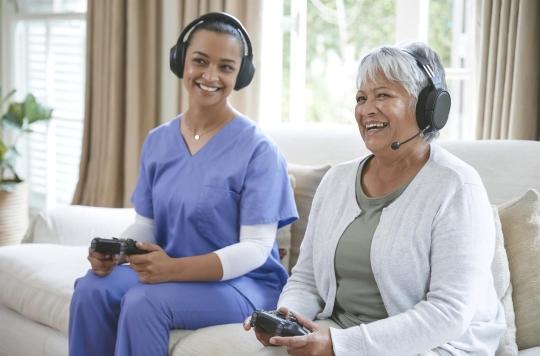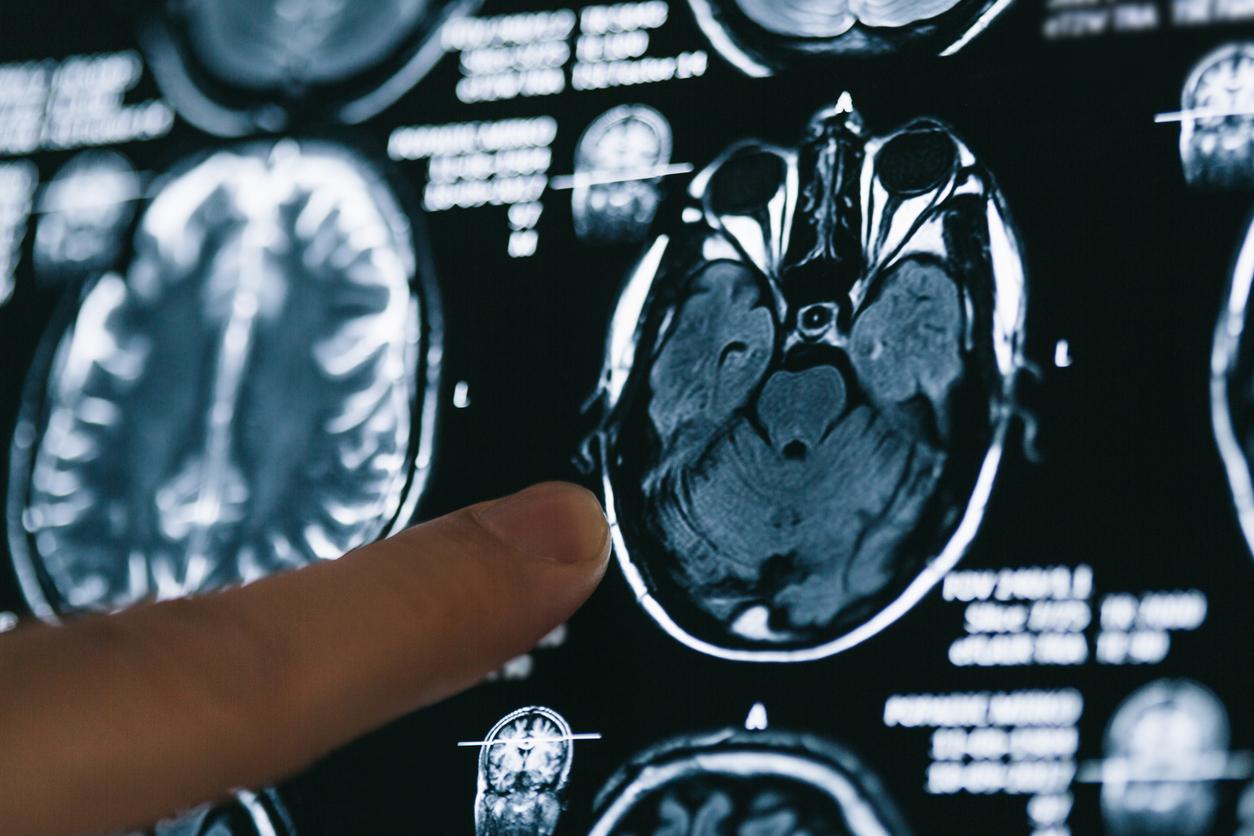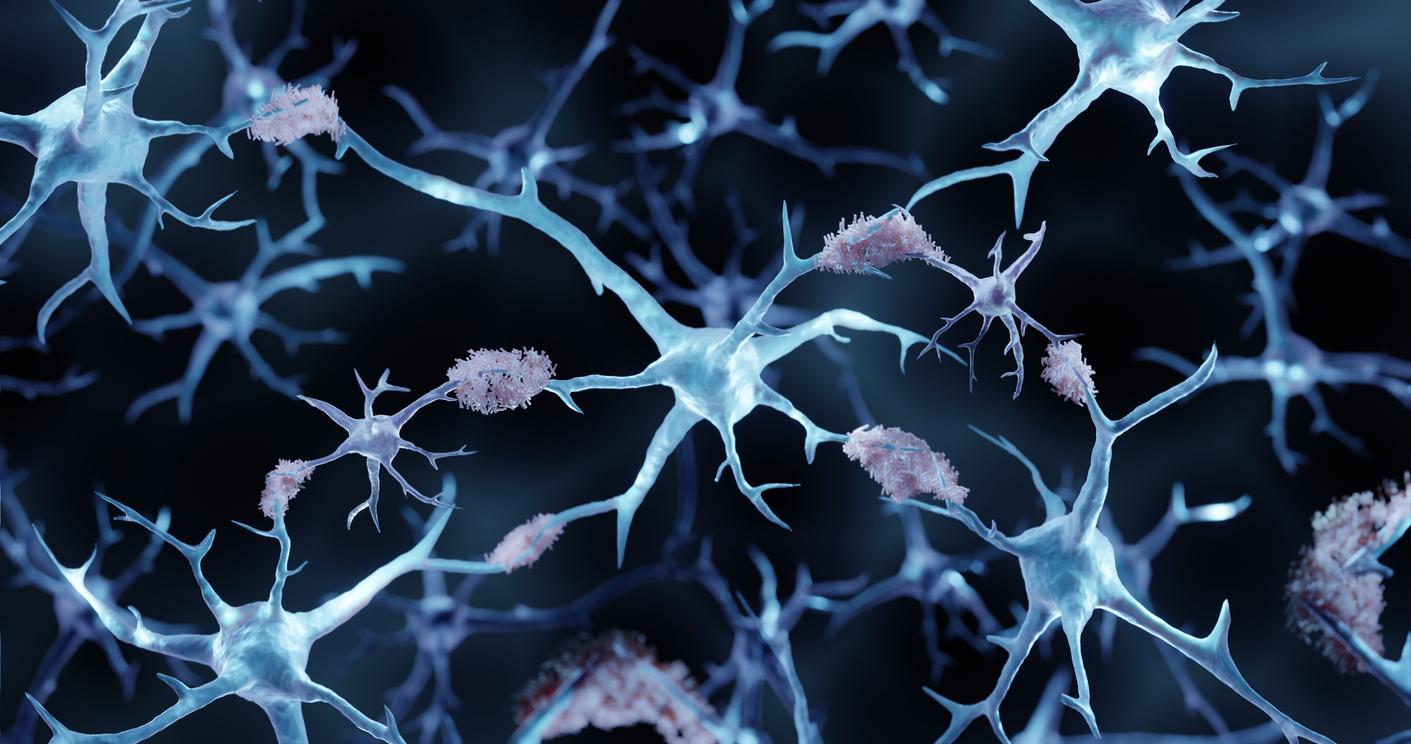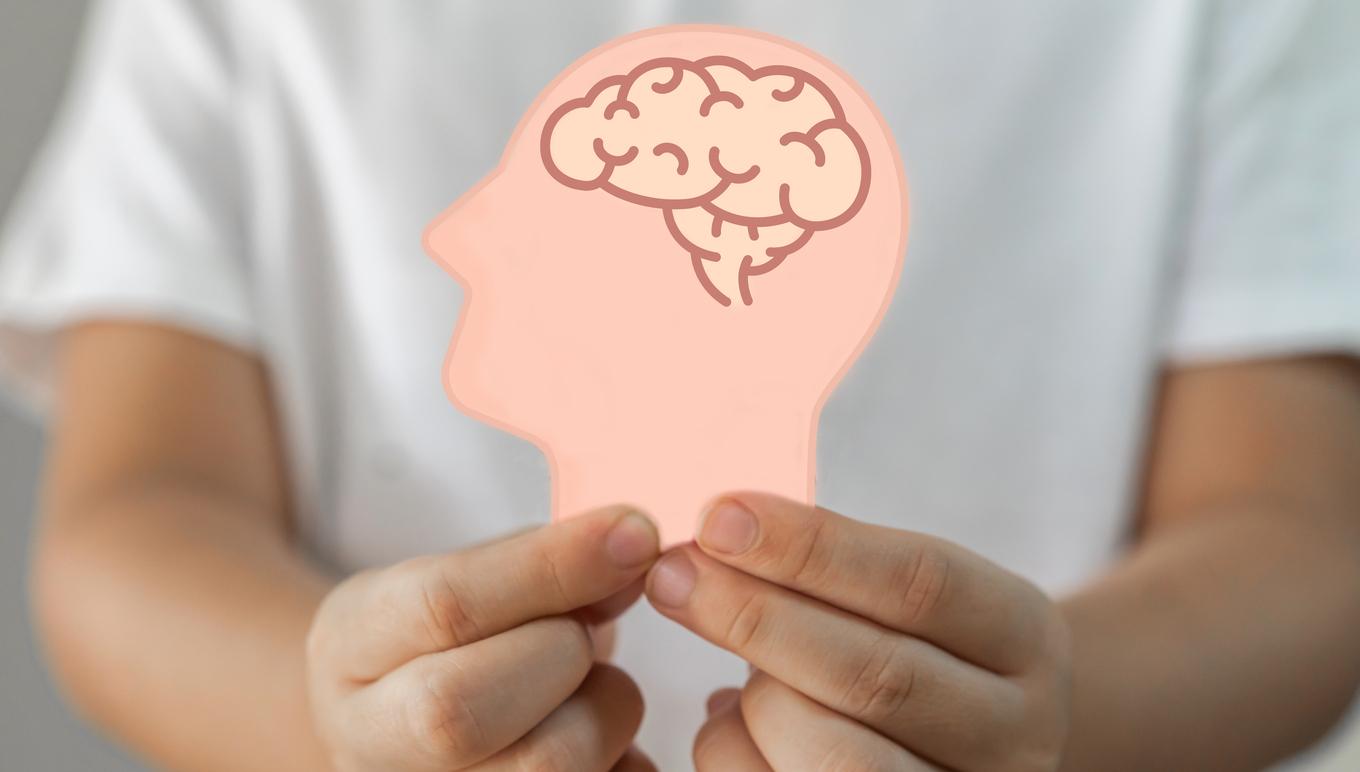On the occasion of World Alzheimer’s Day, the editorial staff looked at a particular non-drug intervention to help patients: video games.

- More than one million French people are affected by Alzheimer’s disease.
- This pathology represents more than 70% of all neurocognitive diseases in the elderly.
- Several studies confirm the benefits of therapy by video games on patients.
According to Overcoming Alzheimer’s Foundation, more than one million people are affected by this pathology in France. “It is therefore 8% of French people over 65 who will be affected in 2020. In addition, it is estimated that 225,000 new cases are diagnosed each year in France.“This neurodegenerative condition causes many symptoms including memory loss, language impairment, loss of judgment, difficulty in problem solving, social withdrawal, mood swings, difficulty thinking. orient or perform everyday tasks, or an inability to recognize familiar objects or people.
At present, there is still no cure for the disease and its evolution is inevitable. While some drugs have shown positive effects, more and more researchers are working on developing non-drug interventions. As such, the use of video games by patients shows encouraging effects.
Cognitive decline: a video game to diagnose the sick
English neuroscientists created a video game called Sea Hero Quest in 2016. It makes it possible to measure a player’s spatial orientation abilities: its alteration is one of the first signs that may announce Alzheimer’s disease. According to the conclusions of their study“people with poor results, compared to the average of individuals of the same age, sex and origin, have a greater predisposition to Alzheimer’s disease, even when conventional tests do not detect anything”.
If this tool is not intended to become a screening tool, it can nevertheless serve as a reference for doctors during their diagnoses. “If an older woman has orientation concerns, it will help to know if these difficulties are normal for her demographic group or if they are more worrisome”, write CNRS scientists (Scientific Research National Center). This game, available for free on mobile phones, has already been tested by more than four million people worldwide.
Video games designed to fight the effects of Alzheimer’s
Several studies confirm the benefits of video game therapy for patients. As such, the tests of the French video game “Serious Game” XTORP have shown very positive results. “In this game, the sick person – the player – is at the controls of a submarine and sails across seas and oceans”, explains Jean-Claude Meignan, President of the France Alzheimer association. He must manage his resources, buy goods and compete against other players to become the richest smuggler.” The advantage of such a game? It makes it possible to “preserve the faculties in playful conditions, by carrying out physical and cognitive training”.
A “magic table” to stimulate people with cognitive disorders
Another innovation is starting to make its way into several nursing homes: the Tovertafel or “magic table”. This tool, proposed by the start-up MJ INNOV, is equipped with artificial intelligence, a loudspeaker and infrared sensors which projects interactive games on a surface. These games have been specially developed for people with mild to severe cognitive impairment, including Alzheimer’s disease.
“By offering games to stimulate people physically, cognitively and socially, it participates in activities to prevent the loss of autonomy and more generally to improve the quality of life.”, says retired nurse Jason Di Falco. “Depending on the projection site (table or floor for example), each resident will be able to solicit both upper and/or lower limbs through the various games offered.” The former caregiver also highlights the social interest of this “magic table”, which helps “combat the apathy of residents with an advanced stage of neurodegenerative disease”.


















